
MAIN RESEARCH AREAS OF THE LABORATORY:
- reliability of power plant facilities: research of metal aging processes and degradation of properties due to the impact of operational factors;
- development and research of multifunctional materials and composites;
- Testing of materials, assessment and analysis of their qualitative indicators.
RELIABILITY OF POWER PLANT FACILITIES
The Laboratory carries out research aimed at the investigation of ageing processes of steel and special alloys that are used as constructional elements for power plants and at studying patterns of aging processes, solving issues concerning control of these processes and service life. Applying mechanical tests, X-ray Diffraction (XRD) and elemental composition analysis, as well as optic and scanning electron microscopy, structural and property changes of aged steel and non-ferrous alloys are studied. Experimental and numerical methods are used to predict operational reliability taking into account material ageing processes and other operational factors. The implementation of the work focuses on the investigation of fundamental physical and chemical phenomena affecting structure and properties of metals.
TESTING OF MATERIALS, ASSESSMENT AND ANALYSIS OF THEIR QUALITATIVE INDICATORS
Researchers of the Laboratory provide material testing services and assess the qualitative conformity of various materials. As a result of successful collaboration with industrial partners, the Laboratory conducts research and provides consultations on product quality and manufacturing processes.
The Laboratory carries out tests on:
- Plastic pipes;
- Plastics and cellular plastics;
- Pre-insulated pipes;
- Masonry mortars and plastering mortars.
Laboratory researchers continuously analyze client needs and expand the range of provided services. They have successfully participated in comparative testing in Germany (Kunststoff-Institut Lüdenscheid and DRRR), confirming a high level of competence in the field of plastics testing.
Reliability of power plant facilities: research of metal aging processes and degradation of properties due to the impact of operational factors
The Laboratory carries out research aimed at the investigation of ageing processes of steel and special alloys that are used as constructional elements for power plants and at studying patterns of aging processes, solving issues concerning control of these processes and service life. Applying mechanical tests, X-ray Diffraction (XRD) and elemental composition analysis, as well as optic and scanning electron microscopy, structural and property changes of aged steel and non-ferrous alloys are studied. Experimental and numerical methods are used to predict operational reliability taking into account material ageing processes and other operational factors. The implementation of the work focuses on the investigation of fundamental physical and chemical phenomena affecting structure and properties of metals. In this research direction, researchers of the Laboratory participated in long-term institutional scientific research and experimental development programs: “Scientific research of safety important processes taking place in nuclear and thermal nuclear facilities” and “Research of processes of nuclear power plant operation decommissioning, nuclear waste and spent nuclear fuel management and radiation impact analysis”. In 2017-2021, the program “Development of future energy technologies, research on their safety and reliability” is being implemented. Further research is in progress on investigating the aging processes of construction materials used in power plant equipment.

In 2016, the project Service life assessment model for new generation steel funded by the Research Council of Lithuania was completed. The objective of the work was to investigate developments of structural changes in steel under high temperature and their influence on the mechanical characteristics and degradation parameters. The structural changes occurring under the influence of temperature were determined investigating phase transformations in steel by assessing the evolution of steel carbides and changes in crystal lattice parameters. Phase changes of steel at 600-700 °C was investigated by means of XRD, scanning electron microscopy and EDX methods. Due to chemical elements diffusion during steel ageing evolution of carbides occurs which manifests by changes in size, element composition and crystalline lattice parameters. The analysis M23C6 carbide lattice changes during high temperature aging revealed that these changes are characteristic for estimation the extent of steel degradation, and thus may be recommended instead of other structural investigation methods.
Johnson-Mehl-Avrami kinetic equation was applied for creating a kinetic model for predicting changes of carbide crystallographic parameters as well as steel mechanical properties taking into account aging temperature and time. It was determined that predicted tensile and creep properties of thermally aged samples correlate well with experimental data. Research results revealed that the developed method rather well defines changes of mechanical properties at thermal ageing and could be relevant in estimating energy facilities ageing-related degradation and could be applied in forecasting their lifetime evaluation.


The Laboratory continued the research initiated by IAEA in 1998 related to degradation impact of hydrogen and hydrides on zirconium alloys. Analysis of Nuclear fuel Cladding Resistance to Hydride Cracking during Long-Term Storage coordinated by the International Atomic Energy Agency (IAEA) was completed in 2016. The objective of this work was to develop experimental procedures in order to assess conditions of hydride cracking in zirconium alloy fuel cladding – threshold stress intensity factor values and temperature limits, under which failure of fuel cladding may occur. By applying controlled hydriding, special construction samples were made of zirconium alloy fuel cladding, in which by changing stress levels, hydride cracking process under given temperatures was studied. The research is important for solving the issues of ensuring safe operation of nuclear power plants and assessing the resistance of fuel cladding to the hydride cracking during long-term storage of spent nuclear fuel.
In 2020, researchers of the Laboratory together with the team of the Laboratory of Nuclear Installation Safety continued the European Union financed programme Horizon 2020 project INcreasing Safety in NPPs by Covering gaps in Environmental Fatigue Assessment, INCEFA-PLUS. The objective of the project INCEFA-PLUS is to obtain new experimental data and submit recommendations by evaluating fatigue induced degradation in the nuclear reactor operating conditions. The impact of strain and stress mode, hold time, and the surface roughness on the fatigue life of austenitic steels will be investigated. Information about the possible fatigue degradation mechanisms will be obtained after conducting the microstructure and a fractographic research of the tested samples using optical and scanning electron microscopy, XRD and EDX analysis. Fatigue resistance tests are performed using a servohydraulic universal dynamic testing machine Instron (Model 8801, 100kN) and Wave Matrix software for creating test programs. The obtained experimental data were standardized and presented in the online fatigue strength database MatDB (JRC, Institute for Energy and Transport). The research will seek to fill in the current gaps in the existing data: create fatigue assessment procedures that would as much as possible comply with the real NPP operational conditions. During the project, a modified environmental fatigue assessment procedures will be created, which will allow a more accurate estimation of the mean strain, hold time and surface roughness influence. This will enable better management of nuclear facility components ensuring a long-term safe operation of the NPP.
Development and research of Multifunctional Materials and Composites
The influence of modification conditions on the structural changes of nano-sized admixtures (natural and synthetic nano-silicates) was identified, i.e. on the distance among tetrahedral layers, and on the nature of modifier and nano-silicates interaction. Modification methodology of nano-silicate as nano-filler for constructional materials was optimized; it can also be applied in implementing other analogous research and continuing activities in the field of new composites development with the assigned tasks.
The structural changes of the cement composition with nano-admixture – organically modified layered nano-silicate – depending on several factors: nano-silicate preparation, its concentration, and concentration of the used organic modifier were estimated. Dependence of morphological properties of cement compositions as well as mechanical and sorption properties from the additionally introduced nano-additive – the concentration of nano-sized silicon oxide particles, was investigated as well. Silicon oxide particles encourage the development of a cement composition with better mechanical properties. Obtained results revealed that complex usage of nano-sized additives – the modified silicate and silicon oxide – in the cement composition enables development a mechanically strong and water-resistant cement matrix, which may be used as a bounder in creating construction materials operated under increased moisture conditions.
Replacing part of the cement with alternative and environmentally friendly materials results in a composite material whose structural properties remain unchanged or even better.

In 2020 the researchers of the Laboratory together with participants from other laboratories have started to implement Priority 1 of the European Union Funds Investment Operational Program 2014–2020 “Promotion of Research, Experimental Development and Innovation” 01.2.2-CPVA-K-703 Measures “Centers of Excellence and Innovation and Promotion of Technology Transfer Centers ”project“ Execution of R&D activities of the Center of Excellence by creating and testing an innovative prototype for the production of gaseous biofuels”.
The project will address issues such as CO2 reduction (biomethane gas is used in an environmentally sustainable way), waste recycling and management (technology allows the diversification of the types of raw materials/waste used), efficient energy and fuel production from biomass/waste (three-generation: electricity, heat and valuable by-product is biomethane).
The researchers of the Laboratory will synthesize a new type of catalyst with a high specific surface area porous heterostructure, which will be used for CO2 / CO methanation and will increase the efficiency and economy of the biomethane formation process. The developed catalysts will be characterized by investigation of their surface morphology and structure properties using SEM / EDX, XRD, N2 physical sorption-desorption, thermal analysis, and other methods.

Identification of Plastics
In 2016, laboratory researchers applying equipment of integrated science, studies and business centre “Santaka”, improved the methodology for plastics identification, which was used to identify polymer waste. Sorted plastic wastes are used as secondary raw material for many products. This not only protects nature and primary natural resources, but also enables everyone to economize.

Main applied research
-
- „Kauno arena“ – corrosion failure analysis of galvanized steel hot water supply pipelines and ethylene glycol supply pipelines used in air conditioning system” samples of steel galvanized pipes, used in a hot water plumbing system, were investigated. Analysis of corrosion failures was carried out, identifying main corrosion factors and presenting recommendations.
- „Energijos skirstymo operatorius” – study of fusion of polyethylene pipe joints used in gas supply system.
- „Lietuvos energijos gamyba“ – identifying the cause of high voltage power line failure.
- „ORLEN Lietuva“ – examination of pipeline elements and remaining lifetime assessment.
The equipment of LEI National Open Access Scientific Research Centre for Future Energy Technologies was used for the research.
Publications
2026
2025
2024
2023
2022
2021
2020
2019
2018
2017
2016
2015
2014
2013
2010
Projects
International projects
Horizon 2020
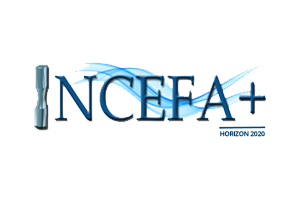
INCEFA-PLUS delivers new experimental data and new guidelines for assessment of environmental fatigue damage to ensure safe operation of European nuclear power plants. Austenitic sMore
Fifth Framework Programme (FP5)
The measures in this project allow the "Centre for Thermochemical Conversion of Solid Fuels" to strengthen its position on the European level, integrating its activities in the EuropeMore
Baltic Research Programme
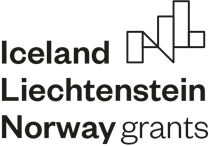
The project seeks to develop specialized concrete for the long-term storage of hazardous waste, which can be immobilized in concrete containers or directly in the concrete mass. DeMore
IAEA
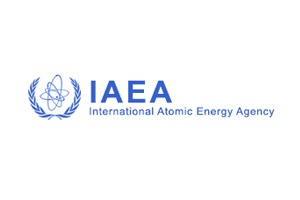
Components for nuclear reactors are made from zirconium alloys because they have a low thermal neutron capture cross-section, high resistance to corrosion in high temperature water anMore

The major goal of the this CRP is to develop experimental procedures for the reproducible measurements of delayed hydride cracking velocity of zirconium alloy cladding. In this procesMore
COST
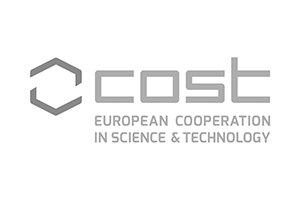
COST Action MP0701 is concerned with polymers, which are reinforced with nano particles. Polymer Nanocomposites are blends of different polymer matrices with nanometre sized functionaMore

The main objective of the Action is to develop an innovative 'integrated toolbox' of predictive methods/models and targeted invasive and non-invasive measurement techniques, improvingMore

The main objective of the COST Action 523 was the development of nanostructured materials with new and unique structural and functional properties in European industries, combined witMore
EUREKA
Other international projects
Researchers from the National Institute of Materials Science at the National Academy of Sciences of Ukraine (UNMA MPI) and the Lithuanian Energy Institute (LEI) have been working to cMore
Projects in Lithuania
EU Structural Funds
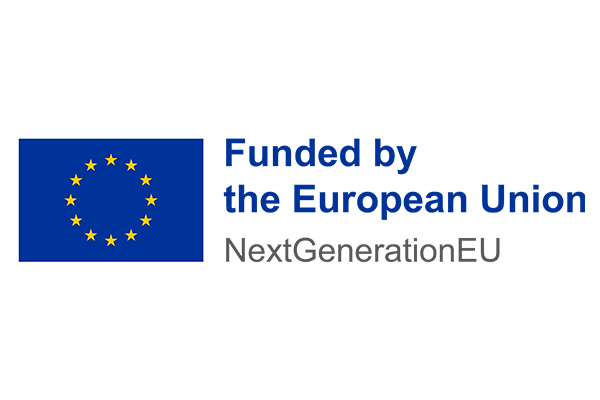
Project summary: The LIFE programme contributes to the European Union becoming a climate-neutral and sustainable society, supports the implementation of EU climate policy iMore
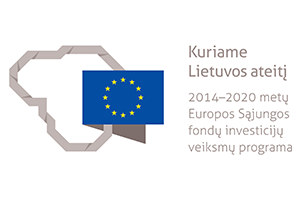
Lithuanian Energy Institute together with its partner Astra LT AB carried out the project „Development of a prototype LDX 2101 duplex stainless steel frame for a semi-trailer tanker“.More

UAB Enerstena together with its partner Lithuanian Energy Institute (LEI) and Kaunas University of Technology (KTU) is implementing the project "Multifunctional Biomass Energy TechnolMore
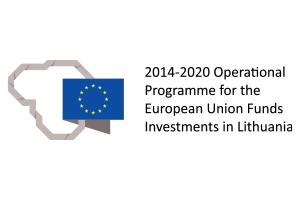
Lietuvos energetikos institutas įgyvendina projektą „Kompetencijos centro MTEP veiklų vykdymas, sukuriant ir išbandant inovatyvų dujinių biodegalų gamybos prototipą“ Nr. 01.2.2-CPMore
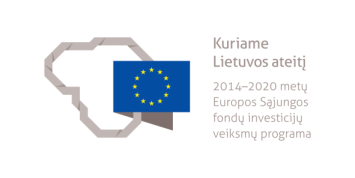
On 7 February 2018, the Lithuanian Energy Institute (LEI) and the public institution Central Project Management Agency (CPVA) signed a contract for the implementation of the projeMore
Other projects in Lithuania
This project brought together five scientific institutions - Vilnius Gediminas Technical University (VGTU), VGTU Institute of Thermal Insulation (VGTU-TI), Lithuanian Energy InstituteMore
Personnel
| Name, surname | Position | Office | phone. | |
|---|---|---|---|---|
| Inna Pitak | Head (Senior Research Associate) | 137-LK | +37037401908 | Inna.Pitak@lei.lt |
| Mohsin Abdullah | PhD Student | Mohsin.Abdullah@lei.lt | ||
| Arūnas Baltušnikas | Senior research associate | 136-LK | +37037401906 | Arunas.Baltusnikas@lei.lt |
| Bohdan Chumak | PhD student | LK-311 | Bohdan.Chumak@lei.lt | |
| Gintaras Denafas | Chief research associate | 314-LK | +37037401995 | Gintaras.Denafas@lei.lt |
| Regina Kalpokaitė Dičkuvienė | Senior research associate | 316-LK | +37037401984 | Regina.Kalpokaite-Dickuviene@lei.lt |
| Virginijus Kazlauskas | Chemical and Physical Sciences Technician | 029-LK | +37037401915 | Virginijus.Kazlauskas@lei.lt |
| Rita Kriūkienė | Research associate | 134-LK | +37037401907 | Rita.Kriukiene@lei.lt |
| Medeina Mačiukėnaitė | Specialist | 136-LK | +37037401906 | Medeina.Maciukenaite@lei.lt |
| Vidas Makarevičius | Senior research associate | 135-LK | +37037401907 | Vidas.Makarevicius@lei.lt |
| Algis Makštys | QA Chemist | 315-LK | +37037401910 | Algis.Makstys@lei.lt |
| Dovilė Petrauskaitė | Specialist | Dovile.Petrauskaite@lei.lt | ||
| Anastasiia Sholokhova | Acting Research Associate | 312-LK | Anastasiia.Sholokhova@lei.lt |





